September 26, 2017
Yeah, yeah…it seems I'm living in the Dark Ages these days. After all, if you read last week's article on why your body is a human battery, along with my review of the book “Healing Is Voltage” (and how I actually read as many books as I do), then you know that I've been a fan lately of old books.
OK, not too old. But pretty old.
How old? Well, in today's article, in which I'm going to explain how you can customize your diet to you, I'm going to begin with a few excerpts from a 1998 gem by Roger Williams entitled “Biochemical Individuality“, described as thus:
“There is no such thing as an average person, we are all genetically and biologically unique. But when sperm meets egg, our characteristics are not locked in stone. This work argues that bad genes do not necessarily cause disease by themselves, and nutrition and environment can alter the outcome.”
The book, recommended to me at a recent health conference by a man deemed as the Father of Functional Medicine – Dr. Jeffrey Bland (the author of many other excellent books you can peruse here), explains the fascinating amount of diversity that exists from human to human, including diversity in everything in the shape of our heart, the shape of our liver, the shape of our hands, the rate at which we excrete various fatty acids and amino acids, our natural enzyme production, and many other elements that display an extreme amount of individuality.
For example, consider the anecdote below from the book (and pardon my dirty fingernail):
In that anecdote, you can see that one of the areas in which we humans highly differ is our own internal microbiome, and that, based on this fact, the presence of certain bacteria can dictate our need for nutrients such as, say, riboflavin or ascorbic acid or Vitamin A (and that's just one of the reasons I recommend everyone take advantage of these new laboratory methods that allow you to test your own unique bacteria from the comfort of your home – a concept that will come into play shortly as I teach you how to customize your diet to you).
Or consider the following second anecdote I'll now share from the book (neatly bracketed by my artistic blue Sharpie marks):
Yep, you read right. Nutrient deficiencies cause cravings (and the book goes into how these cravings go far above and beyond the level of mere booze). Of course, this isn't exactly groundbreaking news as I have indeed written about this seemingly logical phenomenon before, but still – this is especially scary to think about when you consider the recent shocking research revealed about the huge rise in earth's CO2 since the industrial revolution, and the subsequent drop in plant nutrients accompanied by a steep rise in plant sugar!
Or how about this?
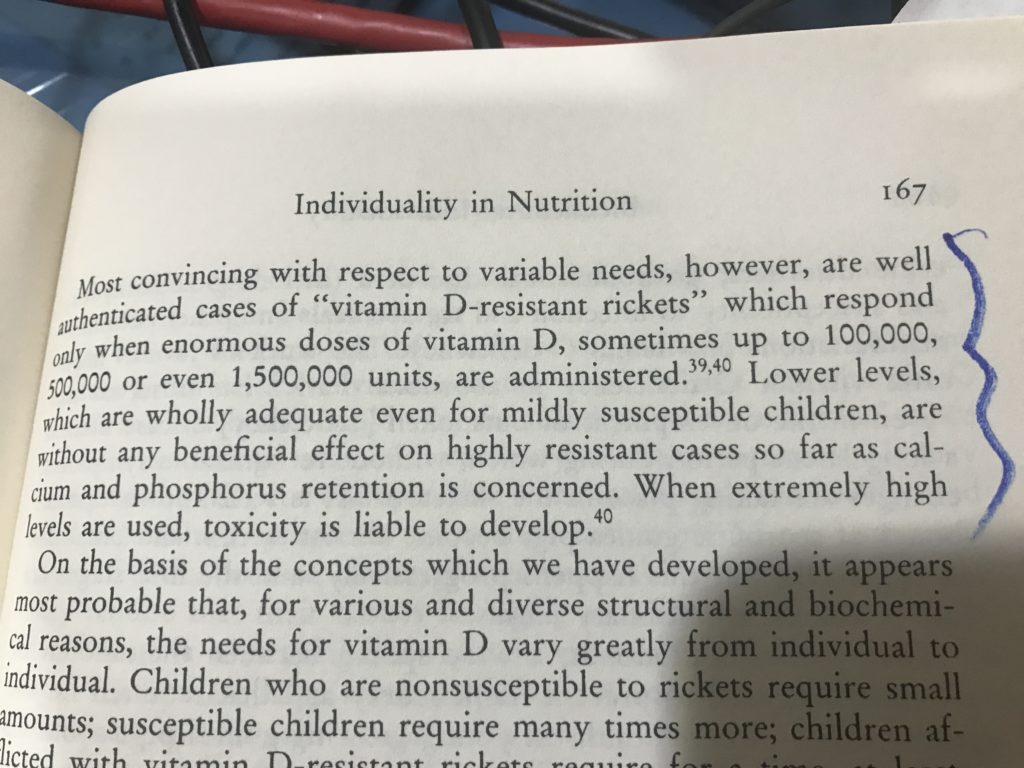
Wow. That should be a big warning sign to anyone still popping Vitamin D like candy based on health media's current infatuation with this seeming cure-all vitamin – there are certain people (possibly you) who can develop toxicity very easily with Vitamin D supplementation, and some people who can develop serious health issues from osteoporosis to hormone deficiencies without Vitamin D supplementation.
And yet, despite this enormous amount of biochemical individuality that exists from human to human, we still see a plethora of diet books published each year (particularly close to swimsuit season and close to the New Year) that promise to be the de facto final solution for everything from fat loss, to health, to banishing acne, to beating cravings and beyond when all-the-while, as so elegantly put below, the same friggin' “ketosis” diet that caused your neighbor to shed twenty pounds can result in massive inflammation, brain fog and oxidized cholesterol for you…
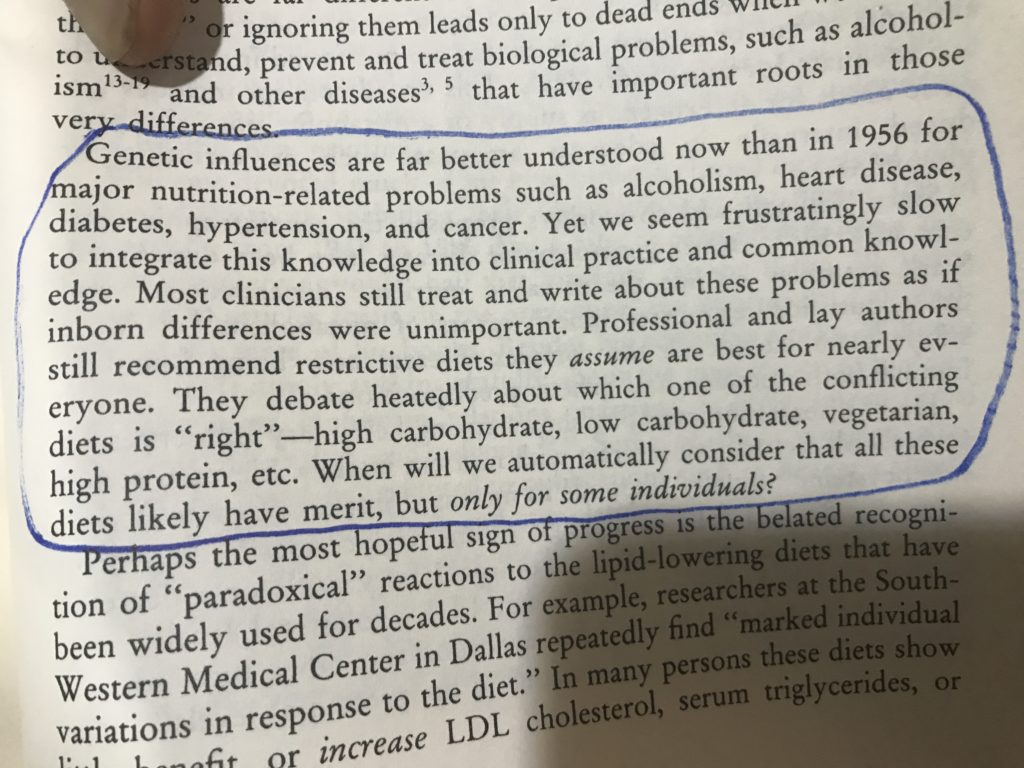
Get that? For dramatic emphasis, allow me to repeat what dear Roger Williams says above…
…”all these diets likely have merit, but only for some individuals…”
So, with that as a background, let's now turn to why diets suck, why I've never written a diet book, and how you can truly customize your diet to you.
F*@# Diets
Diets suck, which is probably why I’ve never written a diet book and also why I think most diet books are silly marketing ploys (despite being the #1 generally accepted way for an author to prey upon our desire to find the holy grail of dieting, make oodles of money by publishing a diet book and then, to grab even extra cash, publish a cookbook a few months after the diet book).
Why do diets suck so hard?
Simple: most diets simply involve a “one-size-fits-all” approach that paints an entire population with a broad nutritional brush, without taking into consideration genetics, personal health history, nutrient, vitamin and minerals holes that need to be addressed, and, as you've just learned, biochemical individuality.
Take the currently popular ketogenic diet I mentioned above, for example. This very high-fat, very low-carb diet is championed by enthusiasts as the perfect way to lose weight, enhance cognition, increase endurance and beyond. And it does indeed work for these goals (for example, for enhanced endurance I personally followed a strict ketogenic diet for years while racing Ironman triathlon and occasionally use ketosis and exogenous ketones as a brain-boosting strategy on mentally difficult days).
However, when reviewing the bloodwork and biomarkers on the lab tests of my clients and people for whom I do health, fitness and nutrition consulting – notably people who are following one of these famous ketogenic diets – I’ve witnessed concerningly high levels of LDL cholesterol (skyrocketing over 400), along with high triglycerides (which can be a risk factor for heart disease and serious liver issues) and high inflammation. How could this be?
In a nutshell, there exists a condition called “familial hypercholesteremia” (HeFH) that affects up to 10% of people worldwide. People with this condition tend to experience a metabolic firestorm in response to a high-fat diet because their cholesterol and inflammatory markers increase dramatically in response to foods such as coconut oil, butter, fatty fish and meats, eggs, etc.
As explained by my friend Chris Masterjohn in this excellent podcast on HeFH, the best way to get to the root of the problem in HeFH is to take the one gene for the LDL receptor responsible for contributing to this condition and try to bring it up to the expression level that would be found in someone without HeFH.
How is this done?
From a scientific standpoint, it can be accomplished by maximizing the biological activity of thyroid hormone and by maximally suppressing the activity of a gene called PCSK9, which is accomplished by increasing insulin signaling. In brief, from a dietary management standpoint (and much to the chagrin of ketogenic zealots), this all comes down to…drumroll please…
…eating a low-fat, fiber-rich, high-carbohydrate diet and replacing saturated fat with polyunsaturated fat – using a diet very similar to an ancestral Kitavan islander diet rich in fiber-dense carbohydrate such as coconut meat, starchy tubers, and fresh fruit. As a matter of fact, in this groundbreaking podcast with me, Denise Minger (who also penned a great article to complement what you're reading right now entitled “Exactly How To Figure Out What Diet Is Right for YOU“) explains how some people who don’t thrive on low-carb, high-fat diets can actually prosper on low-fat, high-carb diets.
Yet another example of the same dietary advice not being good for everyone (and one big reason why, despite the prevalence of diet books, we have failed so miserably at controlling the obesity epidemic), is the wild variation in blood sugar response that can occur when subjects in controlled dietary studies eat foods like cookies, bananas, sushi and whole-grain bread. The latest research on this newly observed phenomenon – detailed in nitty-gritty specifics in Robb Wolf's fantastic book “Wired To Eat” – suggests that each person’s capacity to extract energy from foods differs dramatically because the interactions among one’s genes, microbiome, diet, environment and lifestyle are so infinitely complex. This also suggests that common measurements of the sugar content of foods, such as the glycemic index, may be relatively useless when compared to looking at individualized blood sugar responses to foods.
Take, for example, one recent six-month study, funded by the European Union. The study, entitled “Food4Me“, investigated 1,500 participants in seven European countries who were randomly given personalized dietary advice based on their genetic data, or instead told to follow standard dietary prescriptions such as eating lots of fruits and vegetables (don't you just love how those two are always “lumped together”), lean meats (I run like the plague when I see a lean meat because I've never once been dressing an animal I've hunted and found meat void of fat) and whole grains (which can spike your blood sugar higher than a Snicker's Bar). Those who were in the personalized diet cohort fared far better than those in the one-size-fits-all diet group, making the researchers pretty confident that personalized diets are the way forward.
Coffee is another perfect example of the need for diet individuality. Current guidelines advise no more than four or five cups of coffee per day. And sure, this is fine for roughly half the population that are genetically “fast caffeine metabolizers”, but for the other half who have a variant of a gene called CYP1A2, any more than two cups per day increases the risk of a heart attack and hypertension.
Scientists are slowly beginning to tease out all these connections, and have now linked at least 38 different genes to nutrient metabolism. Dear Roger Williams wasn't aware of this fact when he wrote the Biochemical Individuality book I described above (although he hypothesized about a genetic influence on propensity to thrive on specific diets), but variants of these genes are now known to hinder or help absorption or the efficient use of nutrients in foods, which means that – depending on your genetic makeup, microbiota, health history and living environment – you should consume more or less folate, choline, vitamin C, fatty acids, starches, caffeine and beyond. A host of other such genes exist, including MTHFR (folate, vitamin B metabolism), FTO (body weight and fat composition), TCF7L2 (blood sugar regulation), APOE ε4 (cholesterol) and FADS1 (fatty acid metabolism).
As you can obviously see, from the failures of a high-fat diet, to individual blood sugar responses to carbohydrates, to genetic variations in the need for major vitamins, minerals and nutrients, the need for dietary customization is enormous.
So how can you customize your diet?
Great question.
How To Customize Your Diet
The fact is, we now live in a magical modern era in which the same kind of self-quantification and lab testing that high-falootin' CEO's decades ago would have paid tens of thousands of dollars for at fancy longevity institutes…
…is now available to the general population at a fraction of the cost.
Let's take a look at my top picks for figuring out how much carbohydrate, fat and protein you should eat, which supplements you should or should not take and how many calories you should consume.
-Blood testing: a good blood test can determine “holes” in the diet that need to be filled from a supplement or food standpoint, such as low vitamin D status (vitamin D can be quite toxic if you’re simply taking it because you heard you should when in fact, your levels are actually already adequate), blood sugar response to certain foods or high blood sugar in general, mineral status, thyroid status, cholesterol status, red blood cell and white blood cell levels, vitamin B, acidity, alkalinity and beyond. Some blood tests can even be used to determine food allergies and intolerances, although most of these are notoriously inaccurate, and will simply give you an exhausting “false positive” list of foods you shouldn’t eat. So what do I recommend for blood tests? For males, this longevity panel; for females, this longevity panel and for both sexes for food allergies, the Cyrex Array 4 (gluten) and Cyrex Array 10 (all other foods).
-Stool testing: your blood can’t necessarily tell you what’s going on in your gut, but a stool panel allows you to determine presence or absence of certain types of bacteria, yeast, fungus, parasites and digestive inflammation, all of which can then be used to determine the need for certain probiotics, cleansing compounds, the need or non-need to avoid fermentable substances such as simple sugars and starches, etc. This one is pretty important, since poor digestion and malabsorption can lead to immune dysfunction, nutritional insufficiencies, and various disease states – along with food allergies and other toxicities. Eventually, I think Viome will progress to the point where this whole “poop in the equivalent of a hot dog tray for three days” test becomes a thing of the past, but for now, I still recommend the three day complete gut testing panel here.
-Microbiome testing: In the article “How Gut Metatranscriptome & Microbiome Analysis Can Change Your Health“, I talk about a new form of complete gut microbiome analysis called “Viome“. Born at the prestigious Los Alamos National Lab, and originated from technology originally designed for national security, It is based on a complete sequencing of the gut microbiome derived from a very small stool sample. By analyzing the genes that your microbes express, Viome can identify which metabolites they produce – in other words, they can determine the role of those metabolites in your body’s ecosystem. By following Viome’s diet and lifestyle recommendations, you are then able to fine-tune the function of your gut microbiome to minimize production of harmful metabolites and maximize the production of beneficial ones.
-DNA testing: As one of the most useful and important ways to customize your diet, genetic DNA testing (performed via a simple and inexpensive salivary measurement) is an excellent method to determine not only what your ancestors traditionally ate, but which genes are present or absent that contribute to everything from antioxidant need to blood sugar response to lactate and gluten sensitivities and much more. I recommend you get a 23andMe analysis done, then upload the results to Stratagene to take a deeper dive.
-Urine testing: This test is somewhat optional, but can be crucial for identifying the very type of tiny nutritional deficiencies I discussed earlier in the introduction of this article – deficiencies that can add up over time (e.g. a slight drop in uric acid excretion over ten years can mean getting or not getting painful gout in your older years). Via a urine analysis and at home “blood drop”, it investigates your levels of organic acids, fatty acids, amino acids, vitamins, minerals and antioxidants. Over time, these tiny nutritional deficiencies can cause a variety of chronic health conditions, and if you struggle with things like poor sleep, less-than-stellar workouts, brain fog, appetite cravings, sore joints, or any other “mysterious” issues, this profile can help to elucidate and discover micronutrients and other small components that other basic blood test simply can’t discover. Of course, for a simpler urine analysis that is far less detailed but far more “affordable”, you can always do this to see 10 things pee can tell you about your body.
-Metabolic testing: A Resting Metabolic Rate test (RMR) determines the amount of energy (calories) your body is using at rest. This measurement is made by analyzing the amount of oxygen your body uses and the amount of carbon dioxide your body produces. Almost all of the energy your body produces is created through aerobic (oxygen utilizing) metabolism. The oxygen is then combined with carbohydrates and fats to make energy in your body’s tissues. When carbohydrates and fats are broken down to make energy carbon dioxide is produced. The percentage of the energy created from carbohydrates and fats – and how many calories you are burning at rest – can be determined by measuring the carbon dioxide your body produces. When paired with an exercise metabolic test, you can find out the same data relevant to exercise (e.g. how many calories you burn at any given heart rate). Armed with this information, you can then know precisely how many calories to eat. To get this test, I recommend you Google the name of your city + the phrase “metabolic testing”. Many universities, health clubs and medical institutions offer these tests to the general public. Here's a somewhat old but helpful article I wrote for Triathlete Magazine that gives you even more nitty-gritty details on metabolic testing.
OK, OK – that might seem like a dizzying array of tests, but it's really not that difficult once you systematize how to quantify your body. For example, I recommend everyone do the following:
-Blood test once yearly
-Gut test once yearly
-Microbiome test once yearly
-Urine test if you have symptoms and issues the other tests can't identify
-Metabolic test once in a lifetime or when you body composition or fitness dramatically changes
-DNA test once in a lifetime
Yes, the total cost per year is probably going to be close to $1500, but this friggin' pales in comparison to what you'll shell out to medical care and insurance agencies over the course of a lifetime if you build up nutrition deficiencies and issues such as obesity, cancer, diabetes, Alzheimer's or dementia, colitis, constipation and the host of other nasties that manifest in the human body when the fuel we put into it isn't the proper fuel for our specific body and – well – biochemical individuality.
Plus, and perhaps this is the propeller-hat donning nerd in me talking, it's pretty cool to keep your finger on the pulse of everything that's going on inside your body, provided you resist the temptation to become obsessive compulsive by adding a microgram scale to the kitchen counter for weighing every last shred of your parmesan cheese. Balance in everything, right?
An Important Final Thought & Summary
Finally, let's close with one important consideration…
…your diet can indeed fluctuate and change as your body and your gut transforms. For example, many people who have digestive issues, toxicity or other health complaints need to initially fix their gut or detox with an extremely “clean” and restrictive diet that eliminates notorious problem foods such as dairy, grains, nightshades, red meat, etc. – even the healthy, organic, natural versions of these foods. The Paleo Autoimmune diet is perhaps my favorite such example. But once the gut and immune system is healed, these foods can gradually be reintroduced and enjoyed once again!
Finally, for specific recipes and diets that are not trendy diet books written to make a quick buck, but are instead very thorough reads appropriate for customizing both plant-based diets and omnivorous diets, I'd recommend you add the following to your library:
-“Plant Paradox” by Dr. Stephen Gundry (book here and podcast here)
-“Ancestral Diet” by Dr. Michael Smith (book here and podcast here)
-“Perfect Health Diet” by Paul Jaminet (book here and podcast here)
-“The Wahl’s Protocol” by Terry Wahl's (book here and podcast here)
-“Deep Nutrition” by Dr. Cate Shanahan (book here and podcast here)
Do you have questions, thoughts or feedback for me about how to customize your diet? Leave your comments below and I will reply!


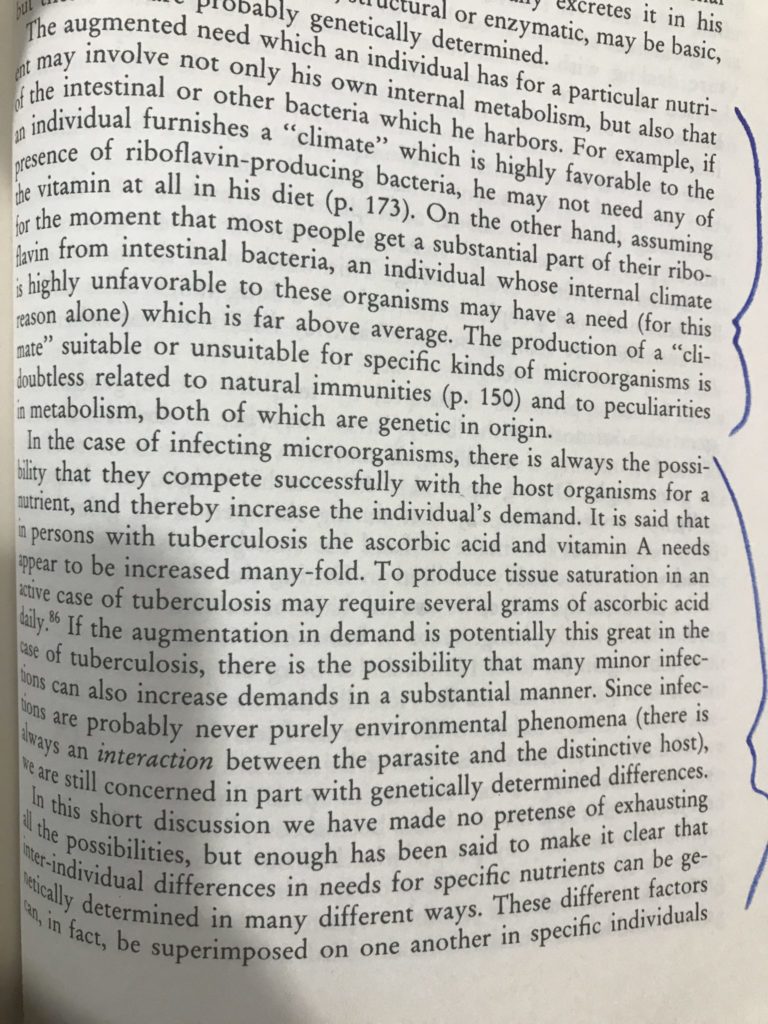
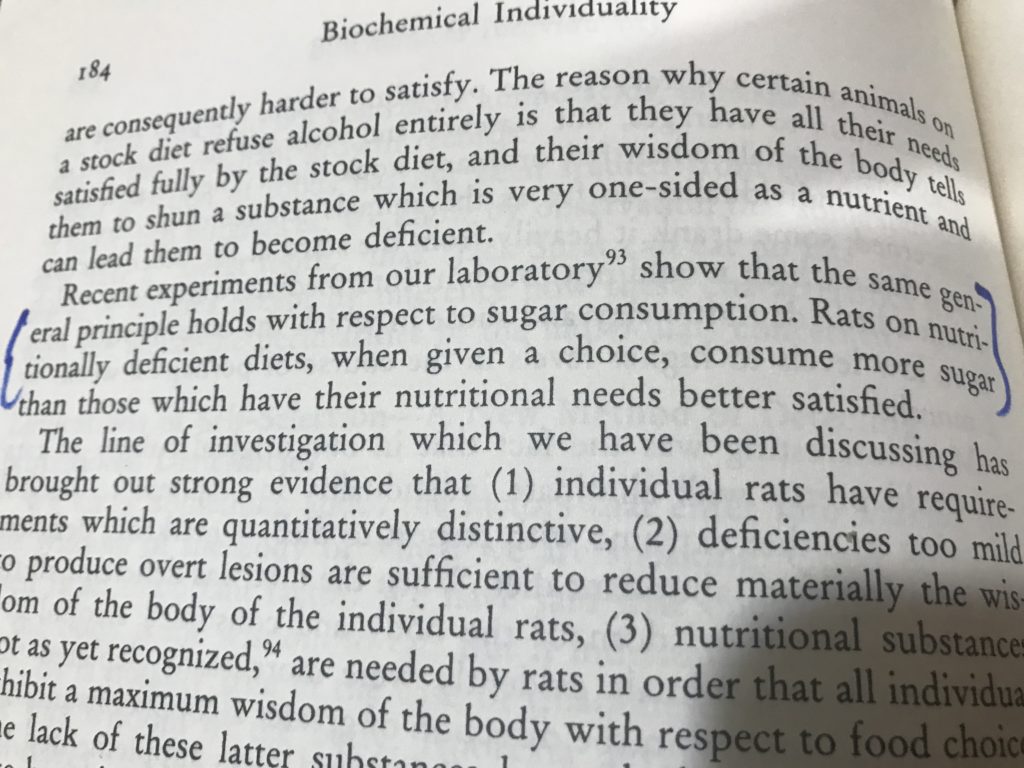









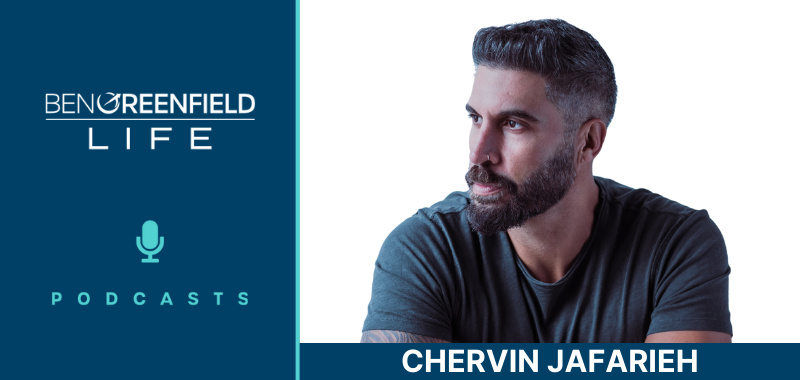
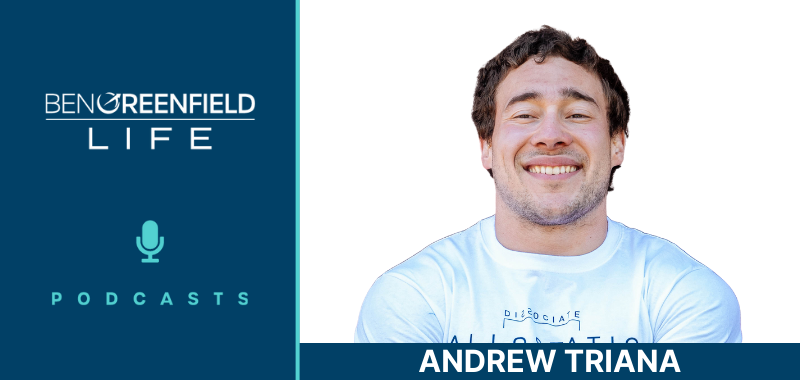

I just got so excited by reading this article with the links to the multiple tests I could have done to help narrow down the best longevity and wellness plan for ME as I am…and then I saw the price tag of each.
I have been struggling since I had my son 4 years ago. I am active, eat well, and feel terrible. All hormones are fine. Doctors say all things look “great”…. I am at my wits end and I feel like these specific tests are the next step, it’s just hard to justify spending thousands of dollars. Yes, people will say “is your health and wellness not worth it?” — of course it is, but it’s hard to talk yourself into it when you have already spent thousands on other stuff that ended up NOT working for you. If you (or anyone else) has any affordable alternatives that would help give me some direction, please let me know!
Hi Ben,
I am currently studying a Bachelor of Health and Nutrition in Australia and asked my teacher about getting some more extensive tests. This was their reply;
“Generally anyone offering services like this that are not a GP are a rort and waste of money. If you have concerns about any particular nutrients a GP is your best service – obviously they will differ in terms of what they advise and whether they will give you a referral for further tests to be taken. Given that not all nutrients are ‘stored’ there are limitations on what can actually be measured and what results are actually meaningful in a long term sense. To be honest it is rare that anyone following a sensible diverse diet to be deficient in any nutrients within our culture. If you want tests done I would advise speaking to a GP as they are the only ones who can provide a legitimate service.”
What are your thoughts on this? Should I seek advice elsewhere?
FYI. A GP in Australia is a General Practioner – a doctor.
Thanks,
Alex.
In my experience, GPs generally lack deep knowledge in nutrition. They are not specialist and have to be concerned with a wide variety of issues they may encounter with the general public. I believe in the merit of the testing that I use, or I simply wouldn't do it. Use good judgement and do your research to make the best decision for you.
I think your teacher has no idea lol
Excellent episode and resources! Thank you. I look forward to Part 2 and the dive into ethical and environmental considerations.
But, I have a question. If you could pick 1 test, only 1 test, to do from the great ones you’ve listed, which would you pick? Or rather, which test should someone do first? I don’t hesitate to spend money on my health and well-being, but I don’t think I am alone when I say that I can’t afford to do all the tests you have recommended in a sort period of time. So, which should I do first?
Personally, I’m leaning toward 23&Me (it’s on sale for the holidays) and then following up with further analysis of the DNA data set. What do you think?
Wellness FX is a very comprehensive panel, and could be a great starting point. 23 and me is not very comprehensive, but you can import your 23&me results into something like DNAFit for more personalized health and wellness recommendations.
Hi Ben, love this article and the F*@# Diets one too, which led me to this one.
I reside in Ontario, Canada – Toronto specifically and since Wellness FX is not available to Canada yet, would you recommend InsideTracker instead (https://www.insidetracker.com/store). If so what’s comparable to the performance package you recommended for Wellness FX?
Thanks a ton!
MJ
Hey, I unfortunately am not familiar with that and don't have a ton of time to do a comparison. I would just check out the test at Wellness FX (which gives you a detailed list of what each test includes) and compare the two.
Hello Ben,
As always a great show! Lots of info to start sifting through, is there anything you personally can share about the Colorado cleans? I like the idea of a gentle cleans but honestly I don’t really know much about the products they have, and why they are all important. Is it necessary to use both Kitchari and supplements in order to get the full effect of the cleanse?
Thank you,
Brenna
Thanks for the vast amounts of info. Quick question for you. I’m currently following a ketogenic diet, loving the results, but if I do the recommended blood/stool/urine testing etc., should I be on a more “free range” diet? Will being on any specific diet skew the results of the lab work so that it may not give an accurate representation of what the normal state of my body is like? Thanks again.
I have been waiting to pull the trigger on the 23andme genetic testing but I am now going to do it. I was wondering if you think there is a benefit to having my parents also do it so we can compare results from one generation to the next?
My adopted Dad did it and it was invaluable because I had no clue where he was from, AND we wound up actually finding his biological parents!
You are able to view each parent’s contribution to your ancestry composition results by having at least one biological parent genotyped with 23andMe and the ability to view your parent’s results. More information is available on this here: https://customercare.23andme.com/hc/en-us/article…
Ben you said these tests will be $1500 a year but the gut test, blood test, and food intolerance test are all $600-$1200 each. Are there cheaper options for those just starting out?
Hmm…Viome is about $199/test…you can go with Performance Panel from WellnessFX, use DirectLabs (follow link in article) for gut panel, and the urine one is OPTIONAL…so you can tweak it a bit…
Thanks for a great article Ben! If you are someone like me who is budgeted out and could only get one of the 6 types of tests listed above, which would you recommend most to help steer towards an optimal personal diet?
Ben, are you familiar with Metabolic Typing? William Willcott talks about this specifically – how to figure out your macronutrient ratios and which foods are best for you based, in part, on your genetics, body shape, tendencies to store fat (or not), etc. What are your thoughts on Metabolic Typing?
I wrote a whole book on it. ;) check out http://www.GetFitGuy.com
I have the APo4 gene from one parent. My cholesterol and triglycerides are good…,I prefer a higher fat/low carb diet but have heard differing opinions about what people with APo4 should do…any advice or resources you would recommend?
Yep, I totally recommend my friend Chris Masterjohn's approach/the Kitavan diet that I discuss in the article above…
Thanks for the knowledge bombs. I”m a trainer and want to encourage my clients to get blood work done more consistently. How do you analyze the results once they take it?
Appreciate it,
Jeremy from Aventura, FL
Either a doc at WellnessFX, your own doc or me can go through results. I'd be happy to help you via a personal one-on-one consult. Just go to https://bengreenfieldfitness.com/coaching. and then choose a 20, 30 or 60 minute consult, whichever you'd prefer. I can schedule ASAP after you get that.
What a fantastic article! Most of us know that one-size-fits-all doesn’t work, but finding your size is the tricky part! I love how you broke it down so simply and set out the testing program one needs to find their personal healthy eating plan.
Jeffrey Bland wrote my nutritional credentialing course.
At age 76 you are becoming one of my favorite health researcher/writers.
Keep up the great work.
We are completely redoing breathing.com and it will soon launch.